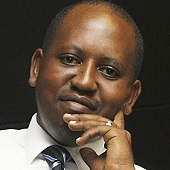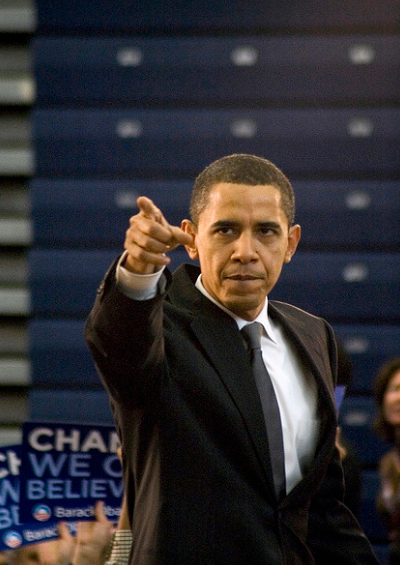South Africa’s Road To Economic Wilderness
The sacking of the finance minister for trying to turn things around does not bode well.
December 14, 2015
On December 9, 2015, South African Finance Minister Nhlanhla Nene got the boot from President Jacob Zuma’s administration. His removal has sent shockwaves through the financial markets and sparked fury among South Africans.
They wonder about the damage that this will do to the economy and livelihoods, because it was clear from the beginning that Nene might actually have been on the right track – to his career’s peril.
He was no cookiecutter cabinet member and his ouster will now go down in history as one of the costliest blunders ever made by the current administration. It taints South Africa’s image at home and abroad.
Moreover, the short-circuiting of Minister Nene’s tenure puts South Africa many steps down a road toward economic wilderness.
Realistic pessimism
Some may argue that this view is way too overly pessimistic. But looking at all the obvious signs, it is also a more realistic view.
Why? Because the shock announcement by Zuma on December 9 was devoid of any logic and justification. This is especially true when his government is meant to be doing everything possible to restore confidence and growth.
It is no longer a secret that Nene’s cardinal sin was to stand up against Zuma’s big plans.
As the head of the Treasury, Minister Nene knew well in advance that South Africa cannot afford to push ahead with a potentially ruinous nuclear energy plan. Its critics have said the plan would cost more than R1 trillion, a sum the country cannot afford.
Nene’s other sin was to demand that embattled South African Airways, the national carrier, back off from a deal that would damage the country’s fiscal position.
Off the rails
But even before the latest saga, the ominous signs were already there for all to see — that South Africa is now and truly off the rails.
On December 4, 2015, South Africa was slapped with poor assessments on its economy and a threat of a downgrade to “junk status” by the credit rating agencies.
The National Treasury, whether you agree or disagree with many of the policy directives that it has implemented over the years, as an institution, has been an oasis of stability and sanity.
That a finance minister can be shown the door at a time when the country is struggling with a moribund economy and one of the world’s highest unemployment rates, shows how little to no appreciation there is of the risks the country faces.
There are now concerns that even the Reserve Bank under Governor Lesetja Kganyago, a friend of Nene, might just not be so untouchable after all. Time will tell.
Economic intensive care
One economist has gone so far as to say that Zuma has essentially thrown market considerations and sensitivities out of the window. In simple terms, what this means is that South Africa’s economy will be in intensive care a lot longer.
But an economy of a country is not a plaything for any individual or individuals, especially a country like South Africa, with a broken past and now an uncertain future.
After 21 years since the end of apartheid, it is a travesty that the economy continues not to work for the masses of poor South Africans.
And yet, Zuma decides to fuel more uncertainty at a time when it is clear that growth is stalled. This uncertainty was very apparent as the rand crashed through the R16 barrier against the dollar. That represented a drop of more than 10% in 48 hours, in the aftermath of the president’s sacking of Nene.
But even before Nene’s removal, the currency was already in free-fall amid sliding commodity prices, sinking business and household confidence, policy ambiguities, power shortages and labor strife.
These and many other challenges will not go away with Nene. His successor, David Douglas Des van Rooyen, is a big unknown. By contrast, Nene served as deputy finance minister before his appointment in May 2014.
The new minister said after taking the oath yesterday that he planned to meet with what he called the Treasury’s “winning team” as soon as today.
Political influence over the Treasury?
But by the look of things, he already has his work cut out and must move with speed to reassure the markets that he is someone they can trust and do business with.
Granted, the National Treasury certainly did not just ride on Nene’s shoulders alone. He had an able team around him. But there is doubt now about its ability to ever be able to do its work unencumbered by politics, opportunism and subterfuge.
From dealing with hemorrhaging state-owned enterprises to stabilizing the government’s finances to battling demand for higher civil servant wages, it was only a matter of time before the Treasury saw the ugly side of realpolitik.
In June, when I had a conversation with Minister Nene on Africa at the World Economic Forum, I started by saying to him: “I don’t envy you for what you have to do.” And his response was: “I also don’t envy myself.”
In hindsight, the sub-text of his retort was that he was well aware of the immense strain of navigating political pressure points.
The biggest one was his failed attempt earlier in December to stand up to the South African Airways board, led by President Zuma’s longtime friend (and chairperson of his personal foundation).
Minister Nene had effectively signed his own career suicide note when he wrote to the SAA board, saying: “I will not entertain any further discussions or applications relating to amending the transaction structure” for the proposed, costly aircraft procurement deal. A red line had been drawn.
Where to now?
So it is really not surprising that Nene then had to have an ignominious exit. But while many unanswered questions still remain, what is certain is that his ejection amounts to a real humiliation – not only for him, but also for the country.
One would have thought that the humiliation, which the government suffered in the most recent #FeesMustFall tuition hike protests by university students, would have woken the administration up.
Those protests should have made it clear even to the president that South Africans are increasingly tired of the permanent paralysis. It is robbing the country of its true potential. It is driving many to live on the edge, as poverty, hunger and destitution mounts.
Most people think U.S. maverick Donald Trump is a clown, but the latest developments will surely make it harder for anyone to be entirely dismissive of his insulting April 21 Tweet:
As I have long been saying, South Africa is a total – and very dangerous – mess. Just watch the evening news (when not talking weather).
Many of us still hope he is wrong.

